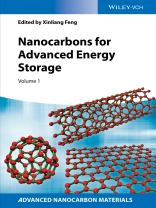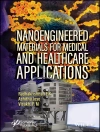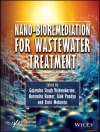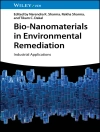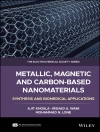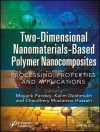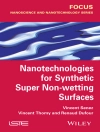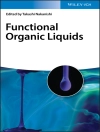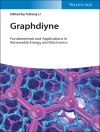This first volume in the series on nanocarbons for advanced applications presents the latest achievements in the design, synthesis, characterization, and applications of these materials for electrochemical energy storage. The highly renowned series and volume editor, Xinliang Feng, has put together an internationally acclaimed expert team who covers nanocarbons such as carbon nanotubes, fullerenes, graphenes, and porous carbons. The first two parts focus on nanocarbon-based anode and cathode materials for lithium ion batteries, while the third part deals with carbon material-based supercapacitors with various applications in power electronics, automotive engineering and as energy storage elements in portable electric devices.
This book will be indispensable for materials scientists, electrochemists, physical chemists, solid state physicists, and those working in the electrotechnical industry.
Innehållsförteckning
Preface
Nanostructured Activated Carbons for Supercapacitors
Nanocarbon Hybrids with Silicon, Sulfur, or Paper/Textile for High-Energy Lithium Ion Batteries
Precursor-Controlled Synthesis of Nanocarbons for Lithium Ion Batteries
Nanocarbon/Metal Oxide Hybrids for Lithium Ion Batteries
Supbercapattery with Hybrids of Redox Active Polmyers and Nanostructured Carbons
Carbon-Based Supercapacitors Produced by Activation of Graphene
Supercapacitors Based on Graphene and Related Materials
Self-Assembly of Graphene for Electrochemical Capacitors
Carbon Nanotube-Based Thin Films for Flexible Supercapacitors
Graphene and Porous Nanocarbon Materials for Supercapacitor Applications
Aligned Carbon Nanotubes and their Hybrids for Electrochemical Capacitors
Theoretic Insights into Porous Carbon-Based Supercapacitors
Nanocarbon-Based Materials for Asymmetric Supercapacitors
Nanoporous Carbide-Derived Carbons as Electrode Materials in Electrochemical Double-Layer Capacitors
Index
Om författaren
Xinliang Feng is a full professor at the Technische Universität Dresden since 2014 and adjunct distinguished professor at the Shanghai Jiao Tong University since 2011 as well as Director for the Institute of Advanced Organic Materials. His current scientific interests include the graphene, two-dimensional nanomaterials, organic conjugated materials, and carbon-rich molecules and materials for electronic and energy-related applications.
